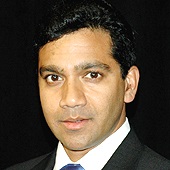On the Politics of Financial Meltdowns
What can the United States learn from the financial crises that have roiled emerging markets?
October 6, 2008
Throughout the 1990s, instability and electioneering infused the financial turmoil in emerging markets around the world.
When Mexico suffered a peso collapse in late 1994, the country had recently been through assassinations, a dirty election and an armed guerilla movement in Chiapas.
During the Asian financial crises after 1997, massive protests against IMF-led adjustment programs took place in Korea, Indonesia and Thailand.
Meanwhile, Malaysia’s Prime Minister Mahathir railed against George Soros, famously calling speculative attacks against Asian currencies “akin to terrorism.” The Russian financial crisis in 1998 evaporated domestic support for Yeltsin, who thereafter had to contend with an emboldened opposition in parliament, and a Communist party-led general strike.
In Brazil following the devaluation of the real, a truck drivers’ strike paralyzed major highways while ranchers, farmers, labor unions, landless peasants and leftists descended on Brasilia to demand relief.
And in Argentina at the end of 2001, a series of violent clashes between demonstrators and police forced President De La Rúa to flee the capital.
A new IMF study examines 124 episodes of “systemic banking distress” (defined as situations where all bank capital is wiped out) in 102 countries.
Using these data, along with available information on governmental characteristics of these countries, there are some lessons from the experiences of those countries.
First, crises don’t always lead to governmental collapse — but changes in government keep recovery costs down.
Several of the financial crisis episodes in the 1990s prompted changes in government — and in a few cases, regime collapse.
Korea, Argentina and Brazil, as well as the Czech Republic, Poland and Turkey (among other countries), all saw incumbents thrown out in elections following currency problems.
In non-democratic states such as Mexico and Indonesia, incumbents began to lose their grip on power. Between 1994 and 2000, a series of opposition-party governors were elected in several Mexican states, eventually paving the way for Vincente Fox’s election and the end of 80 years of single-party rule.
In Indonesia, amid riots sparked by rising prices for rice and kerosene, Suharto’s 30-year regime came to an end in 1998.
But political change is not the norm: The data show that in less than one-third of the counted episodes did governments change hands within three years following the onset of the crisis.
However, countries where governments changed ended up better off. The concentration of economic power usually means that investing in influence to obtain privileged treatment is regarded as any normal economic activity.
In many of these crisis countries, it was common knowledge that paying off public officials to obtain benefits — favorable legislation, judicial rulings, regulatory forbearance — was sometimes as lucrative as profit maximizing.
But it was also, naturally, a recipe for widespread moral hazard. Whether for grupos in Latin America, chaebol in Korea or financial-industrial groups in Russia, large portions of business were acquired through the cultivation of close ties with governments.
Consequently, shifting political winds mean that those who lose power can no longer deliver benefits to certain favored private business and financial interests.
Those groups, then, are less likely to avoid shouldering the costs of crisis resolution.
The second lesson is that re-establishing credibility can be just as hard as re-establishing solvency.
In addition to political instability, financial collapse also breeds policy uncertainty, something which can be more harmful to prospects for recovery.
Instability and uncertainty are not the same. The former refers to frequent changes of government, which in extreme circumstances can certainly harm prospects for recovery.
Uncertainty, on the other hand, can be present even where governments are stable — and is more likely to be present under conditions of systemic financial distress.
Under financial-crisis conditions, investors, depositors and entrepreneurs complain that financial reforms promised are broken, that implemented policies are poorly enforced or reneged upon and are arbitrarily interpreted — and subject to frequent and unpredictable changes.
Many market- and country-based risks are always present and investors will seek commensurate returns, or they will insure themselves against these risks.
These risks may be influenced by governments but they are not typically under government control. By contrast, risks created by policy and regulatory instability are fully under government control and — short of expropriation — are generally not insurable.
Re-establishing credibility in governmental actions — convincing investors that their commitments will not be eroded — can require wide-ranging institutional reforms.
Editor’s Note: Read Part II of this Globalist Paper — which explores three more lessons to be learned from financial crises in emerging markets — here.
Takeaways
Several of the financial crisis episodes in the 1990s prompted changes in government — regime collapse in a few cases.
In addition to political instability, financial collapse also breeds policy uncertainty.
Re-establishing credibility in governmental actions can require wide-ranging institutional reforms.
Those who lose power can no longer deliver benefits to certain favored private business and financial interests. Those groups are less likely to avoid shouldering the costs of crisis resolution.
Whether for <i>grupos</i> in Latin America or <i>chaebol </i>in Korea, large portions of business were acquired through close ties with governments.
